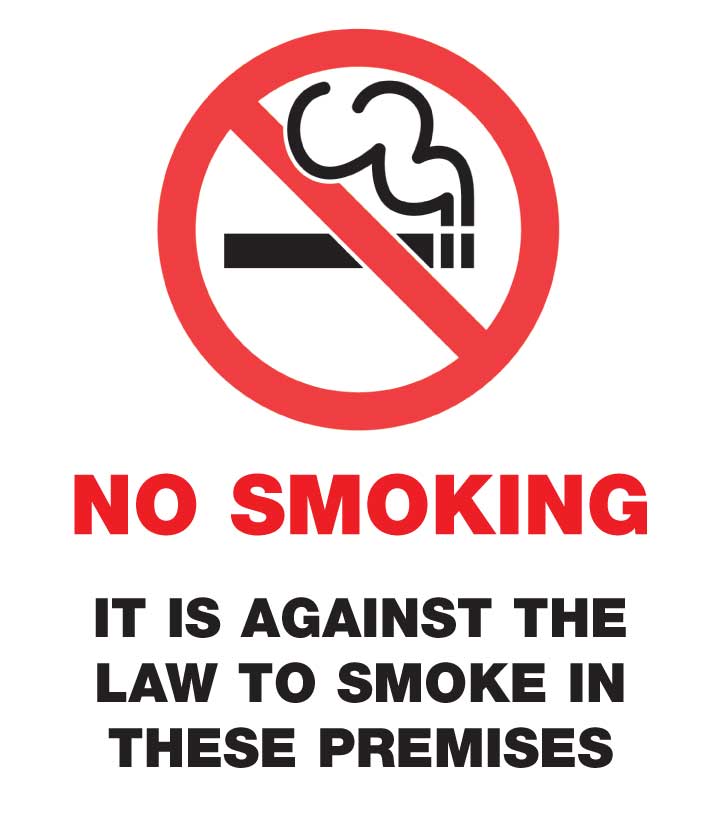On July 11, 2013,
the Global Adult Tobacco Survey (GATS) Nigeria report was officially presented
to the general public at a launch event which held at the Sheraton Hotel, Abuja
and chaired by the Honorable Minister of Health, Dr. Onyebuchi
Chukwu. In attendance were representatives of relevant agencies
including the World Health Organisation, National Assembly, Ministry of
Education, National Bureau of Statistics and civil society organisations.
One of the major
focus of the GATS report is second hand smoke and according to the statistics
released, three specific places represent top locations where more than 50% of adults
in Nigeria are exposed to secondhand smoke. The three locations are
restaurants (29.3%), workplace (17.3%) and government buildings (16.7%).
These figures
when weighed against the percentage of people who are exposed to secondhand
smoke in the home (6.6%) show that there is an urgent need to protect the
health of people who do not smoke but by virtue of having to go to their place
of work, visit a restaurant or honour appointments with government officials find
themselves in the position of passive smokers. The figures also show that our
level of knowledge on the impact of smoking on non-smokers is low. This is because
if majority of Nigerians were aware, tobacco control would today be a front
burner issue across major media platforms and at most foras.
Prior to the presentation
of scientific evidence on the devastating effects of inhaling environmental
tobacco smoke by the World Health Organisation (WHO), smokers guiltlessly
carried out their act whenever and wherever and non smokers also did not mind
flocking around them innocently. However, with the signing and ratification of
the FCTC by 177 countries, several nations have stood up to the occasion to
protect the health of non-smokers in their homelands by banning smoking in
public places.
Ireland was the
first to introduce an outright ban on smoking in workplaces and this has been
in effect in the country since March 29, 2004. As a result of the ban, smoking
in bars, restaurants, clubs, offices, public buildings, company cars, trucks,
taxis and vans became a punishable offence and any enclosed workplace found
contravening is made to pay a fine of £3,000 (≈N450,000) per smoker found in the premises.
In the United
Kingdom, each constituent administration instituted the ban at different times
before end of July 2007. The ban came
into force in Scotland on March 26, 2006, in Wales on April 2, 2007, in
Northern Ireland on April 20, 2007 and finally in England on July 1, 2007.
Similar to the provisions in Ireland, persons who flout the ban are made to pay
an on-the-spot fine of £50 (≈N12,500) each while businesses that allow smoking are fined £2,500 (≈N375,000) in England
and Northern Ireland.
As for the
United States of America, the ban on smoking in public places has been handled
on a state by state basis. At present, 28 states have enacted smoking bans in
all general workplaces and public places, six states have prohibited smoking in
workplaces but exempt all adult venues including bars while different cities
and counties in ten states have varying degrees of smoking bans in place.
In June 2013,
Russia joined the league of countries with nationwide smoking bans. The Russian
ban proscribes smoking on public
transportation, at airports and train stations, inside schools and hospitals
among other public spots. In addition, cigarette ads are also to vanish from
streets and smoking is not allowed to be featured in Russian-made movies and
cartoons.
I remember that
in 2008, the Dr. Aliyu Modibbo Umar-led administration in the Federal Capital
Territoty, announced a smoking ban which made it illegal to smoke in public
places, however due to weak enforcement and inadequate public education, the
FCT is yet to be a smoke-free city. Other states in Nigeria such as Osun and
Ekiti have also made attempts at introducing smoking bans as it is on record
that the Osun State House of Assembly passed a bill to prohibit smoking in
public places on 20 October, 2009 and the Ekiti State House of Assembly did
likewise on September 26, 2012.
I do not need to
remind Lagosians of the Traffic Law passed in July 2012 which outlawed smoking
while driving and it is interesting to note that the Lagos House of Assembly
has gone a step further by initiating a new comprehensive bill on regulation of
smoking in public places. Sadly, despite these bold steps, many still fear the
laws might not be strongly enforced.
Countries that
have long enforced nationwide bans are today enjoying diverse health benefits including
improved air quality and pulmonary function, reduction in cases of heart
diseases and stroke, increase in number of people who quit smoking, drop in
cigarette sales and prevention of deaths.
I sincerely look
forward to the day when non-smoking Nigerians will be free from the puffs of
smoking colleagues, neighbours and co-users of public amenities. I know the day
will come but I’ll like to ask the authorities concerned, what are we waiting
for?
In order not to
wait for too long, you can join the Tobacco Control Campaign by signing up as a
Cause Champion. Simply send your 1) Name, 2) Email address, 3) Telephone number
and 4) Location to: info(at)socialresponsibilitymanagers.org. Signing up will get you a chance to have a specially designed Facebook, Twitter and G+
profile banner graced with Stella Damasus’ picture.
You should also actively participate in the
discussions on Tobacco Control presently ongoing on the following social media
platforms:
- Twitter: Follow @TobaccoCtrl
- Facebook: Visit and like Tobaccoctrl
- Google Plus: add
Tobaccoctrl to your circle
- 2go: add Tobaccoctrl

No comments:
Post a Comment